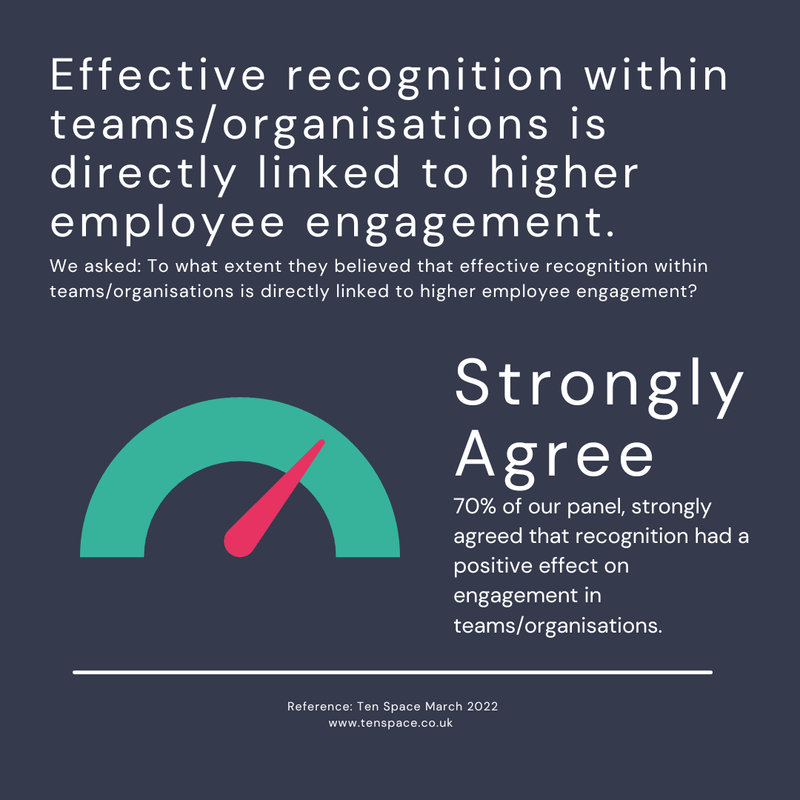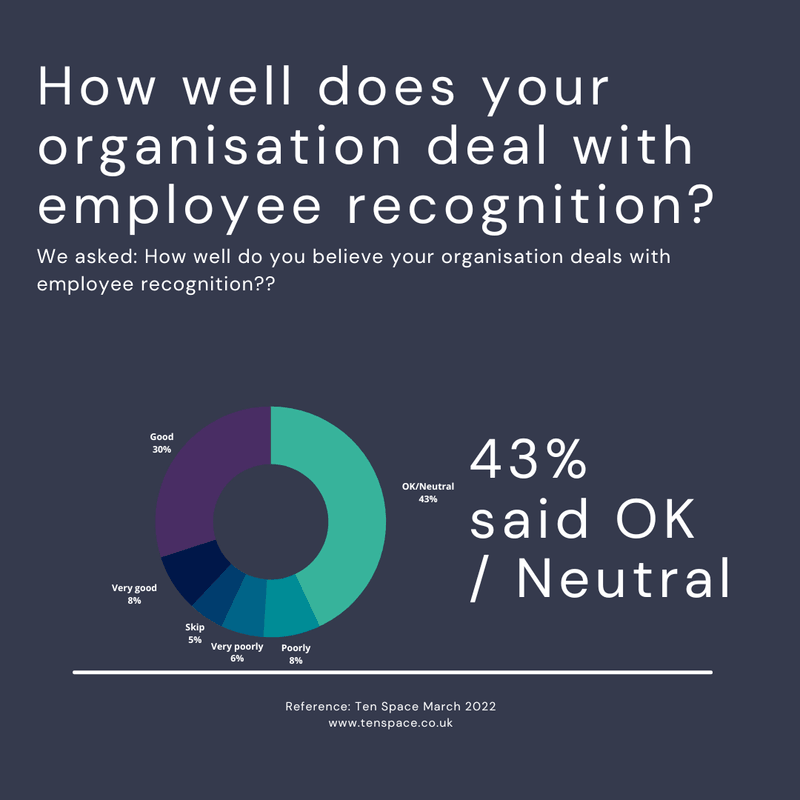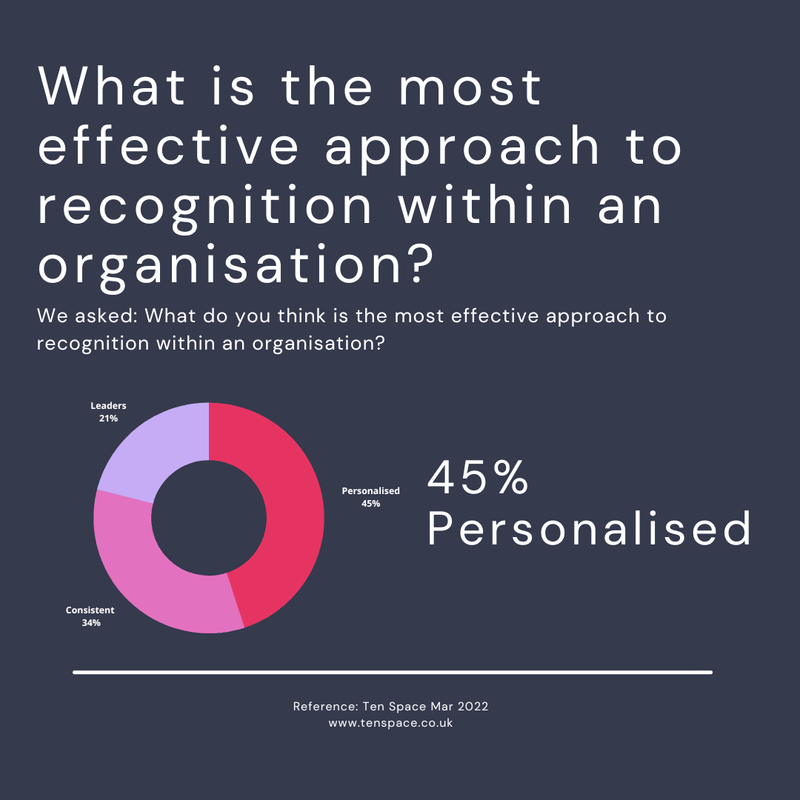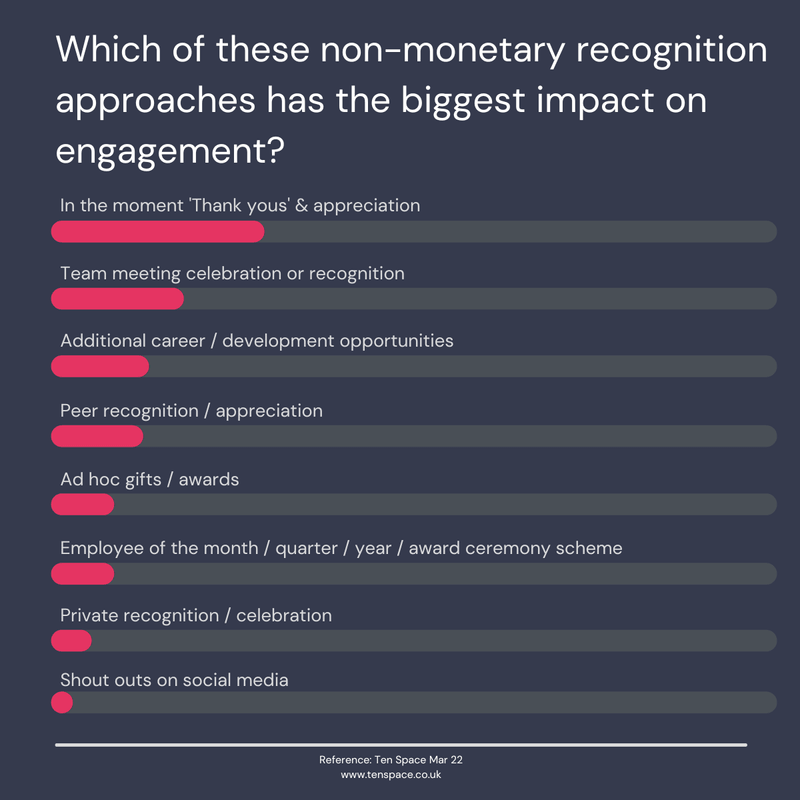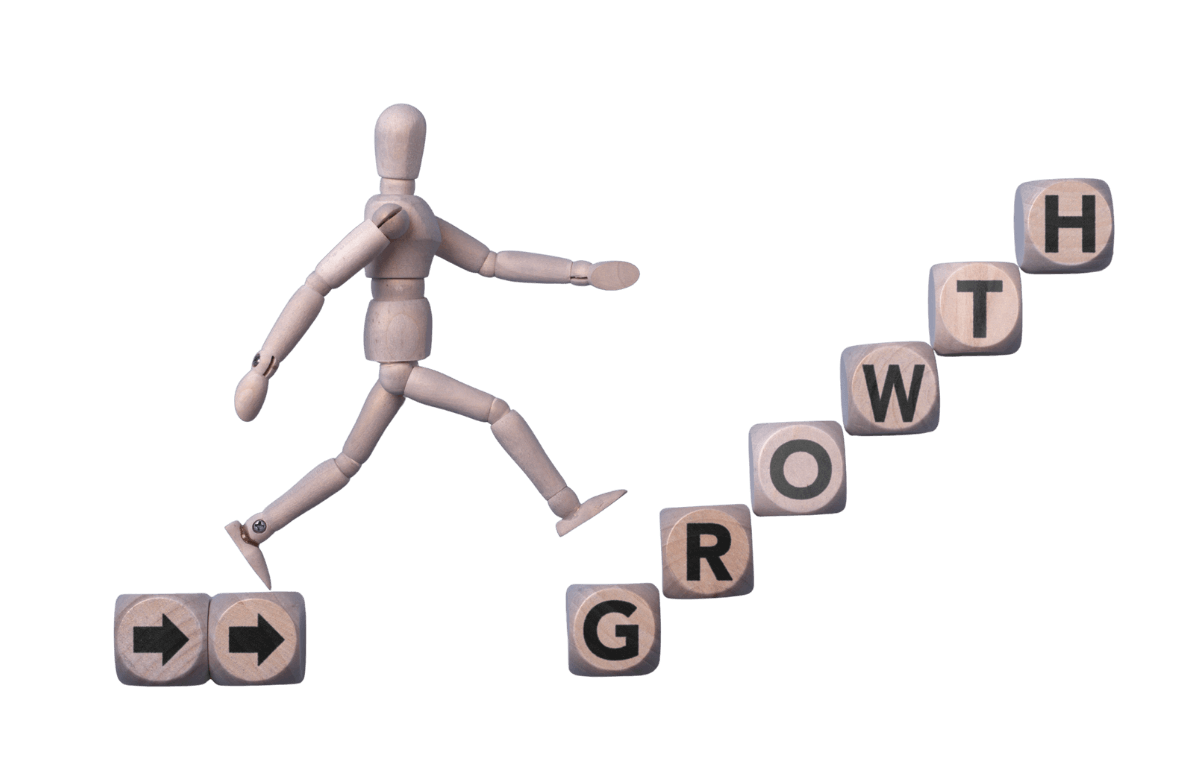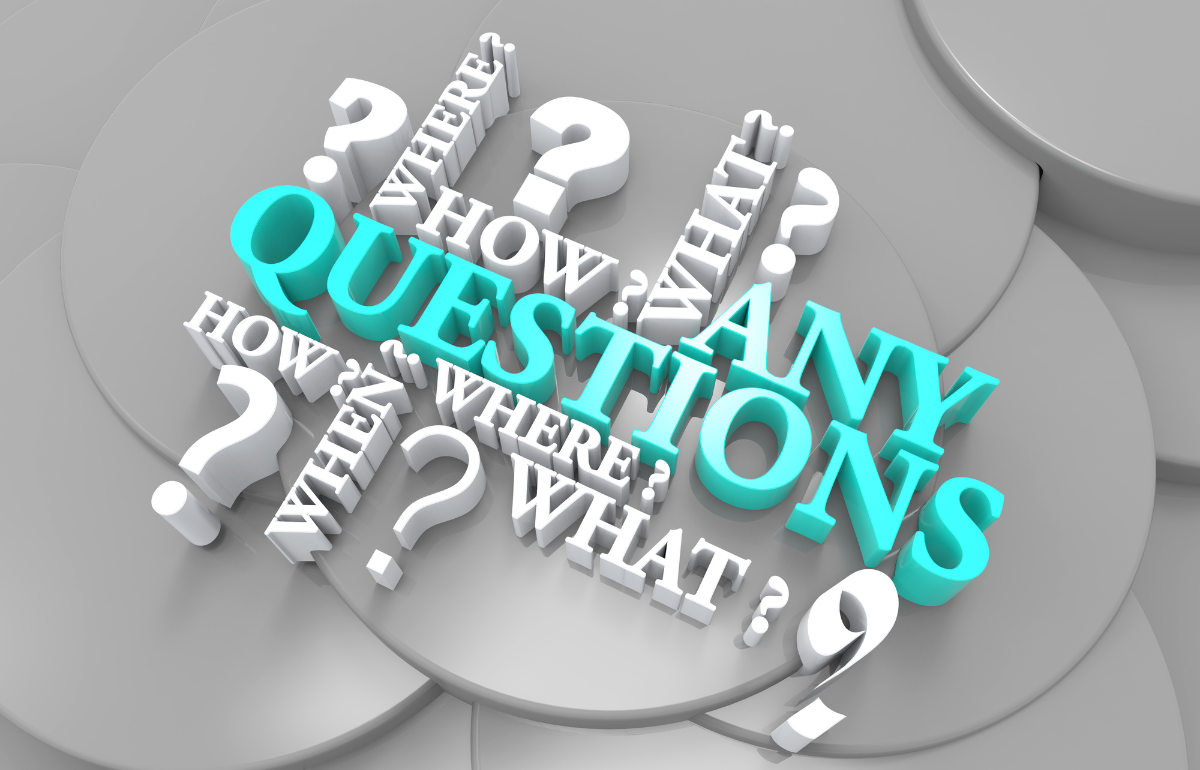Each month, we ask our panel of business and HR leaders about the hottest topics impacting employee engagement in UK businesses.
In March, we focused our questions on recognition and the impact it has on engagement.
When referring to recognition in our questions, we defined it as appreciation shown for a contribution.
We were particularly interested in achieving the feeling of recognition for everyone, rather than just top performers.
Here’s what our leaders told us....
(To find out more about how we conduct the survey, or to get involved read to the end of the article)
Employee recognition has a positive impact on employee engagement.
We asked our panel, to what extent they believed that effective recognition within teams/organisations is directly linked to higher employee engagement.
The majority, 70% of our panel, strongly agreed that recognition had a positive effect on engagement in teams/organisations.
Only 4.5% of our panel didn’t believe there was a link at all.
How effective are organisations at recognition?
With such a high percentage of our panel agreeing that it has an impact on engagement, we asked how effective they thought their organisation, or organisations that they worked with, were at recognition.
We had the largest number of respondents choose the option “OK / Neutral” - making up 43% of all responses.
The second largest group was “good” (30%) with only a small percentage (8%) responding that they felt organisations were “very good” at this.
Overall, this indicates that we could be doing better in the area of recognition. There is a potential missed opportunity to build engagement in this area.
Our panel commented: “I think this is an area that is easy to get wrong. I see lots of recognition piled on the heroes, or top performers only. It can often be at the expense of engagement of the wider population. If recognition is about favourites, it can really impact on the sense of fairness.”
“I think this is a really tricky subject and can fall flat on its face. Good cultures deal with this much better as recognition tends to happen more naturally ie the thank you’s and appreciation, rewards/wards tend to be team focussed based on goal or target achievement. In poor cultures recognition initiatives are fraught with danger, can feel forced and inconsistent, patronising, fall short, can encourage accusations of favouritism and have a negative impact.”
“There are some things I see that just make me cringe. Things like employee of the month etc are so infantile. I much prefer “in the moment” recognition and thanks, or, if done publicly, linked specifically to the values or behaviours being recognised and done in a meaningful and honest way.”
What is the most effective approach to recognition?
We drilled down a little further, to find out what our panel thought was the most effective starting point for effective recognition. Is it best to have something that is consistent across the organisation? Or something that the leader decides for their team? Or is it more effective if it is personal to the individual?
The majority response to this question was that the personal / individual approach was the best for effective recognition. 46% of our panel chose that option.
Our panel commented: “I think recognition needs to be very personal. With introverts/extroverts and everything in between means people need different approaches.”
“Recognition needs to be genuine. If not, there's no point. Employees know when you aren't being genuine and it can lower their engagement.”
What types of recognition have the biggest impact?
For this question, we got really specific, presenting our panel with a choice of 8 typical recognition methods. We asked them to choose the top 3, which they felt had the biggest impact on employee engagement.
Our panel favoured:
- In the moment “thank yous” and appreciation
- Team meeting celebration / recognition
- Additional career development opportunities
Here’s some of the other examples that our panel gave of ways they use recognition:
“We share weekly dashboards with the team that cover company goals and targets, we have a thank you and achievement section as well as a teams channel devoted to positivity and shout outs! High fives and happy vibes it’s called!.”
“Name checking who has contributed to a bigger project when you are presenting results. Calling out when something mentioned is someone else’s idea. If you hear something good about someone, telling them about it.”
‘We have unofficial thank yous in each business meeting. So each department will give an update and generally a few thanks’
“For me the most impactful is also the most simplest - immediate recognition and praise when someone has done something well”
“Involvement in projects, idea schemes, belief and value in employees ideas”
“Simple things like a handwritten note from the CEO/other senior leader.
Something else I’ve seen which is really simple but was very effective (although it worked best when everyone was in the office). The person being recognised got to spin a wheel and whatever it landed on was their prize - these ranged from an Amazon voucher to lunch with the boss (paid for) to an extra days holiday. It brought the whole department together and was something fun.”
So what are the key takeaways here?
From our research some key themes emerged;
- Recognition is a key element of employee engagement
- In general, organisations may have more work to do when it comes to recognition and it’s link to engagement - it seems being exceptional in this area may pay dividends in terms of building employee engagement
- If you are looking for a place to start your recognition strategy, start with what the individual wants, rather than at a team or organisational level.
- The easiest (and cheapest) place to start when it comes to recognition, is with thank yous and in the moment appreciation of a job well done.
- A well-executed recognition plan is likely to be layered with a number of different tactics and approaches, to keep it feeling authentic and relevant.
Be part of something special....
The Ten Space 'Feedback 500' is a piece of monthly research we conduct to understand more about the topics affecting employee engagement. Each month we send our leadership community 5 short topical questions via WhatsApp. All responses are captured anonymously. We have leaders from a wide range of sectors including: HR consultants, recruitment, retail, automotive, creative arts, construction, technology, utilities, e-commerce, digital, marketing, legal, health, public sector and education.
Ten Space is an expert in providing employee surveys that help understand, track and monitor the engagement, thoughts and motivations of your workforce throughout the entire employee lifecycle so you have the insight to make data-driven decisions. Contact us to see how we can help your organisation.

